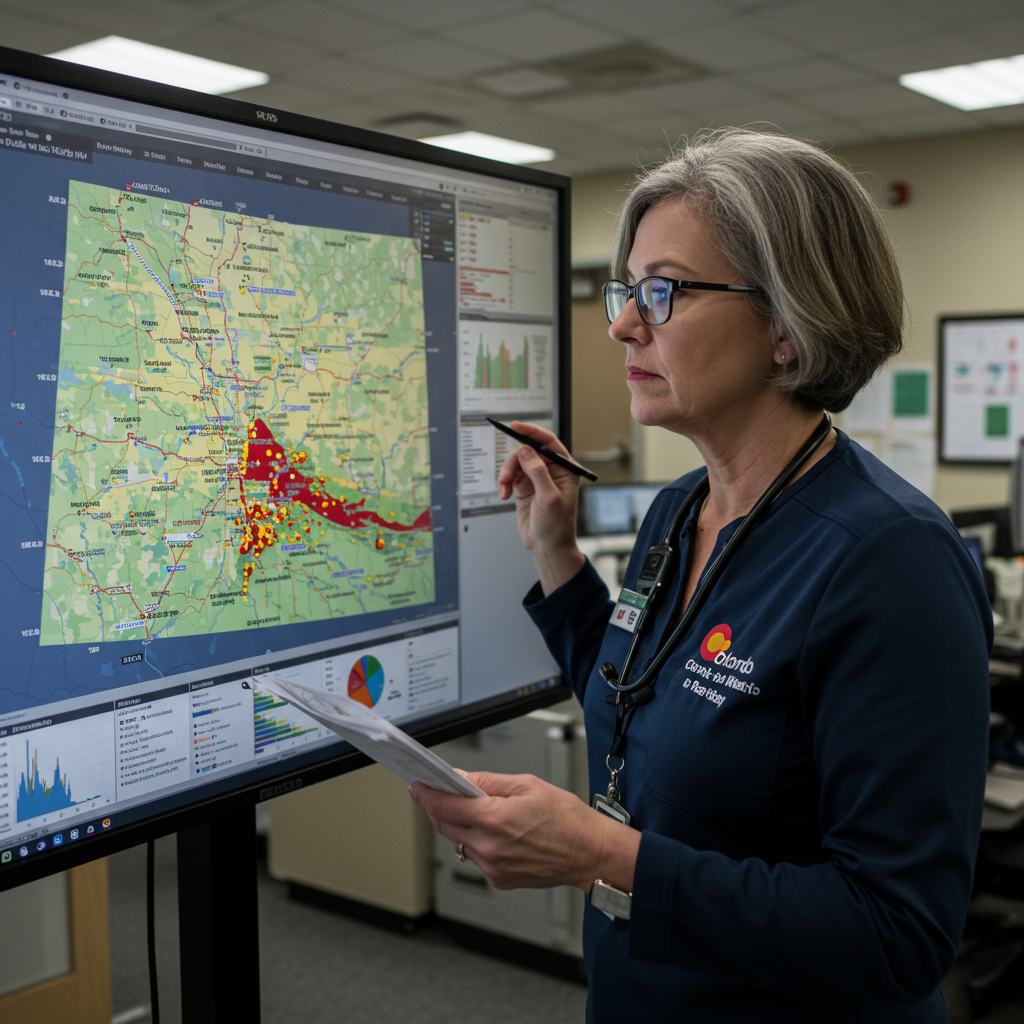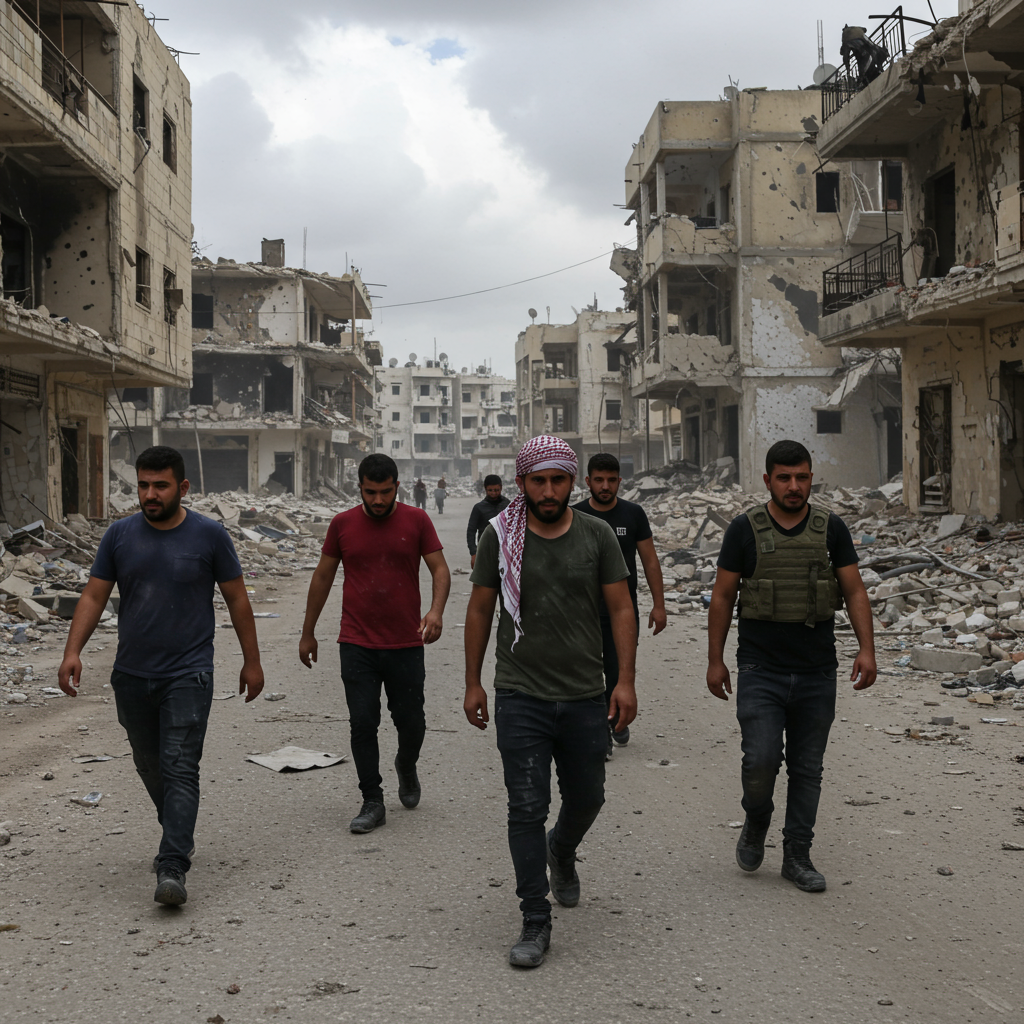Colorado Reports 15th Measles Case of 2025, Found in Vaccinated Boulder County Adult
Colorado health officials have announced the state’s 15th confirmed case of measles this year, identified in a “fully vaccinated” adult residing in Boulder County. This latest case highlights the continued spread of the highly contagious virus across the state, which is experiencing its highest number of measles infections since 1996.
According to the Colorado Department of Public Health and Environment (CDPHE), the individual recently traveled to Europe, a region currently facing a significant surge in measles cases. The emergence of cases in vaccinated individuals, while rare, underscores the importance of vigilance, especially following international travel to areas with active outbreaks.
This is not the first instance of a breakthrough measles case in Colorado this year; the state’s fifth case was also confirmed in a vaccinated adult in Denver who had traveled to Mexico. Public health experts emphasize that while breakthrough cases can occur (the two-dose MMR vaccine is 97% effective, meaning about 3 in 100 vaccinated people could still get infected if exposed), vaccinated individuals typically experience milder symptoms and are less likely to transmit the virus compared to those who are unvaccinated. State health officials maintain that vaccine recommendations remain unchanged, as the MMR vaccine provides robust protection.
Potential Exposure Locations Linked to 15th Case
CDPHE has identified several locations in Denver and Boulder where this individual may have exposed others to measles. Anyone who was at these sites during the specified dates and times should monitor themselves for symptoms:
Market Building (1400 16th St., Denver): June 3-6, 8 a.m. – 6:15 p.m.
RTD Flatiron Flyer (Between Denver and Boulder, both directions): June 3, 6:45 – 9:35 a.m. & 4:05 – 7:15 p.m.; June 5, 6:45 – 9:35 a.m. & 4:05 – 7:15 p.m.; June 6, 6:45 – 9:35 a.m. & 4:05 – 7:15 p.m.
Little Finch Coffee Shop (1490 16th St., Denver): June 4, Noon – 2:15 p.m.; June 5, Noon – 2:15 p.m.
Whole Foods (1701 Wewatta St., Denver): June 4, Noon – 2:30 p.m.
Rosetta Hall (1109 Walnut St., Boulder): June 6, 7:30 – 10:45 p.m.
The potential symptom development window for these exposures extends through late June.
What to Do If You Believe You Were Exposed
Health officials urge anyone who might have been exposed, particularly those not fully vaccinated with the MMR vaccine, to monitor closely for symptoms for 21 days following the potential exposure date. During this monitoring period, it is crucial to avoid public gatherings and high-risk settings to prevent further spread.
If symptoms develop, immediately call your healthcare provider before visiting a clinic or emergency room. This allows the provider to take precautions to protect other patients and staff.
Understanding Measles Symptoms
Measles is highly contagious and spreads through the air when an infected person coughs or sneezes. Symptoms typically appear 7-14 days after exposure and include:
Fever
Cough
Runny nose
- Red, watery eyes
- www.denver7.com
- www.denver7.com
Three to five days after these initial symptoms, a rash appears, usually starting on the face and spreading down the body. A person is contagious from four days before the rash appears until four days after it starts. Importantly, measles only spreads from individuals who are showing symptoms.
Risks and Prevention
While most people recover from measles within a few weeks, unvaccinated individuals face a significantly higher risk of severe complications. These can include ear infections, pneumonia, seizures, brain damage, a condition known as “immune amnesia” which weakens the immune system’s memory, and even death.
The MMR vaccine is the most effective way to prevent measles. Two doses offer 97% protection. A single dose provides about 93% protection. For unvaccinated individuals exposed to the virus, receiving the MMR vaccine within 72 hours of exposure (and before symptoms appear) may help prevent infection or reduce symptom severity. Individuals vaccinated before 1968 with an earlier, less effective vaccine should consult their healthcare provider about potentially needing a booster.
Colorado’s 15 cases this year mark a significant increase compared to the 7 cases reported in 1996. Beyond the Boulder case, other cases have been confirmed in Arapahoe County (4), Denver (4, including the vaccinated adult and an unvaccinated infant and relative), El Paso County (4), Pueblo (1), and Pagosa Springs (1). This surge is part of a larger multi-state outbreak across the U.S.




